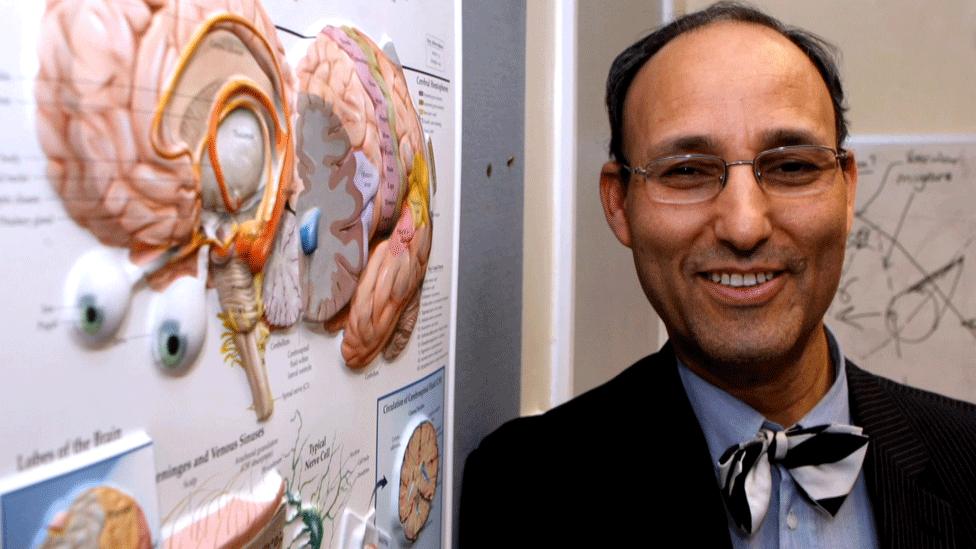Damning report on surgeon Prof Sam Eljamel's botched operations
- Published
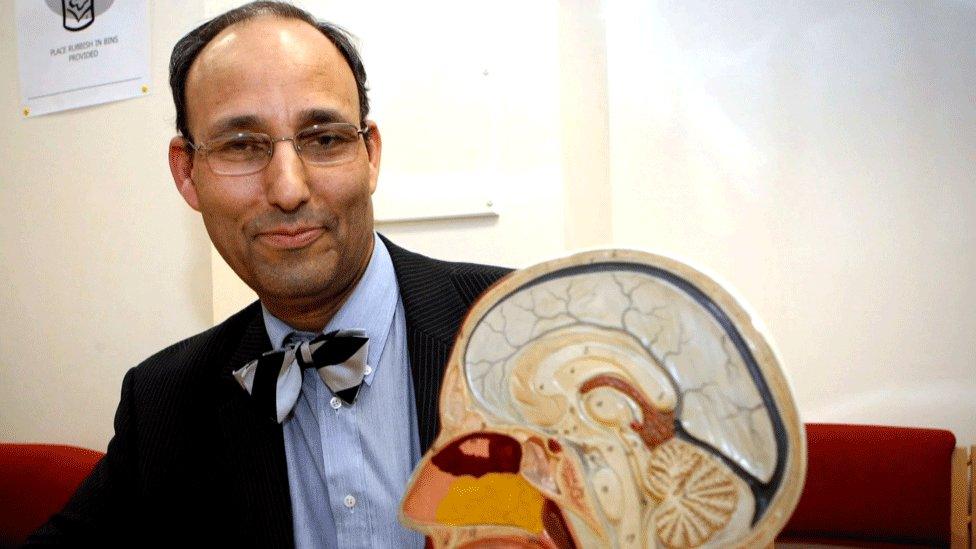
Sam Eljamel was the head of the neurosurgery department in Ninewells Hospital in Dundee
A damning report has highlighted failures in how NHS Tayside oversaw a surgeon who harmed patients for years.
The internal Scottish government report into Prof Sam Eljamel, which has been leaked to the BBC, said the health board repeatedly let patients down.
It outlined failures in the way Prof Eljamel was supervised and the board's communication with patients.
The report was commissioned last year over unanswered questions and concerns from patients Jules Rose and Pat Kelly.
Mr Kelly has been left housebound and Ms Rose has PTSD after the neurosurgeon removed the wrong part of her body.
Both patients met Health Secretary Humza Yousaf over the summer and said he promised to help them obtain answers to their outstanding concerns, but they claim he has now "washed his hands" of them.
Scottish Conservative MSP Liz Smith called for a public inquiry, saying there had been a lack of accountability and the investigation had still not got to the truth.
NHS Tayside said it had apologised and significantly improved its clinical governance.
The Scottish government said the health board needed to make providing the patients with answers the highest priority.
Jules Rose still has not been told exactly when health bosses knew he was a risk to patients.
Prof Eljamel, the former head of neurosurgery at NHS Tayside in Dundee, harmed dozens of patients before he was suspended in 2013.
He was allowed to voluntarily remove himself from the General Medical Council's register and is now working as a surgeon in Libya.
After her operation in 2013, Ms Rose discovered that Prof Eljamel had taken out the wrong part of her body. He removed her tear gland instead of a tumour on her brain.
She still has not been told exactly when health bosses knew he was a risk to patients.
The latest Scottish government report said she should receive an apology.
The written apology she received from the board last month said it was sorry she "feels" there has been a breakdown in trust.
"I actually rejected the apology," she said.
Ms Rose said she wanted the chairwoman of the health board to explain why it will not offer a "whole-hearted apology" for its failures.
She said she was "sickened" that after the trauma she had suffered she still cannot move on.
"My nightmare began from the first day I was diagnosed with this rare brain tumour - and it still hasn't ended."
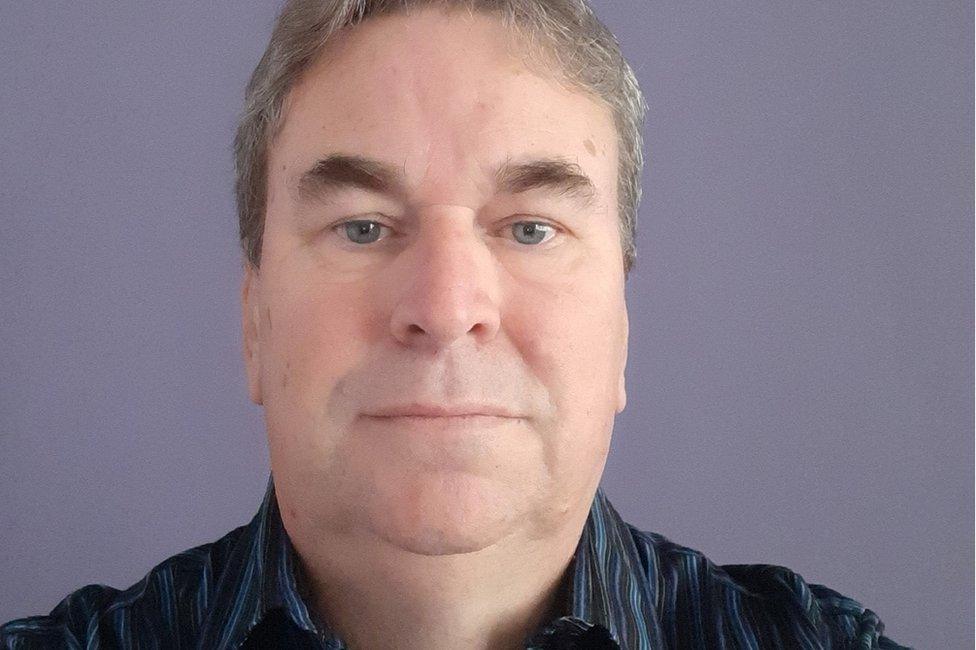
Patrick Kelly, who has been left in constant pain and faces the risk of paralysis
Mr Kelly, who has been left in constant pain and faces the risk of paralysis, almost died after his spine operation by Prof Eljamel in 2007.
He has been told that, because of the scar tissue caused by the incision made by Prof Eljamel, he cannot have further surgery as the risks are too high.
The report said senior clinician involvement in his care was "woefully substandard" and "one of the main reasons of his continued difficulties and complaints".
He still does not have answers to what happened during his surgery or who was in the room.
"But again this was dismissed," he said. "We need a public inquiry to get to the truth."
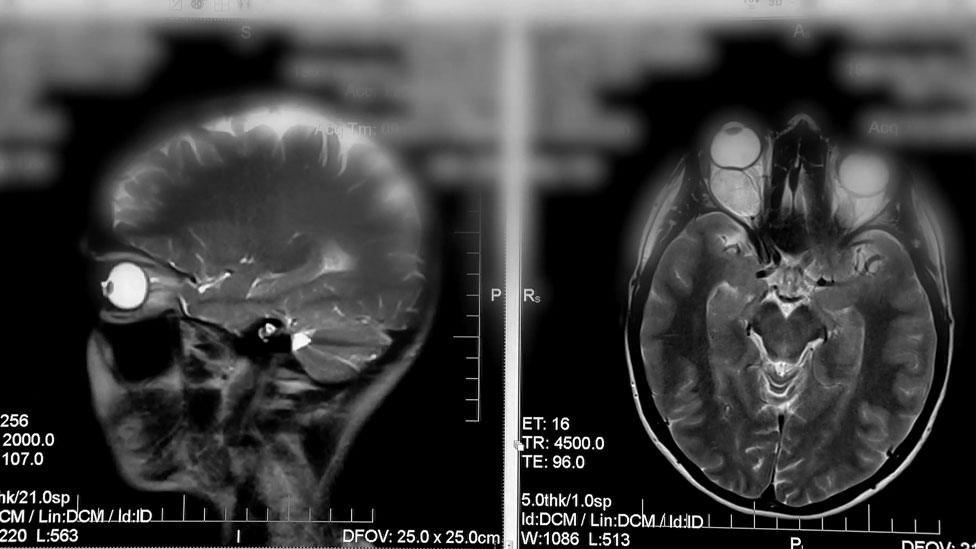
Jules Rose suffered from a brain tumour and was operated on twice by Sam Eljamel
The report said the NHS board should respond to Mr Kelly's unanswered questions about what happened on the day of his surgery.
It added that NHS Tayside should meet the two patients and ensure the future "care and support" of Mr Kelly and Ms Rose for the "distress" caused to them.
The patients had their meeting with the health board last month but said it had failed to provide any "care or support" or fulfil the key recommendation to provide answers.
'Closed the door'
Ms Rose and Mr Kelly met Health Secretary Humza Yousaf in the summer to discuss the report.
They said he assured them he would help in getting the answers they have been seeking from NHS Tayside for years and asked them not to discuss the report publicly.
Ms Rose told BBC Scotland: "He promised me he would speak to NHS Tayside and they would assist me.
"He asked me to take my independent review off the table and now he's firmly closed the door on me and sent me back to NHS Tayside to obtain the answers myself.
"I think his motive was for this damning independent review not to get out into the public."
She has been back in touch with Mr Yousaf in the past fortnight to ask for his help but has been referred back to the health board for answers.
She and Mr Kelly said they had been left "high and dry" by the Scottish government.
Public inquiry
The Scottish government said Mr Yousaf welcomed the "opportunity for a personal meeting in this case".
A spokesman said: "The questions that now remain are ones that can be answered by NHS Tayside rather than government, and we have been very clear with the board that we expect them to give this the highest priority and continue to support and involve those affected."
But Tory MSP Liz Smith said there now needed to be a public inquiry.
"It's not just about the medical malpractice, it's about the lack of accountability and with all the procedures that were supposed to investigate what had gone wrong, we've never got to the truth," she said.
"That's absolutely something that I think these patients deserve, they deserve justice and I've watched them suffer over a very long period of time. My heart goes out to them."
NHS Tayside said it had already fulfilled the report's recommendation to meet the patients and that both "received apologies" from the board.
It said it agreed to share its own action plan and that there was an ongoing review of Mr Kelly's surgery.
A spokeswoman said: "Some of these recommendations have already been addressed as clinical governance and assurance processes in Tayside have significantly evolved and improved."
Related topics
- Published21 December 2021
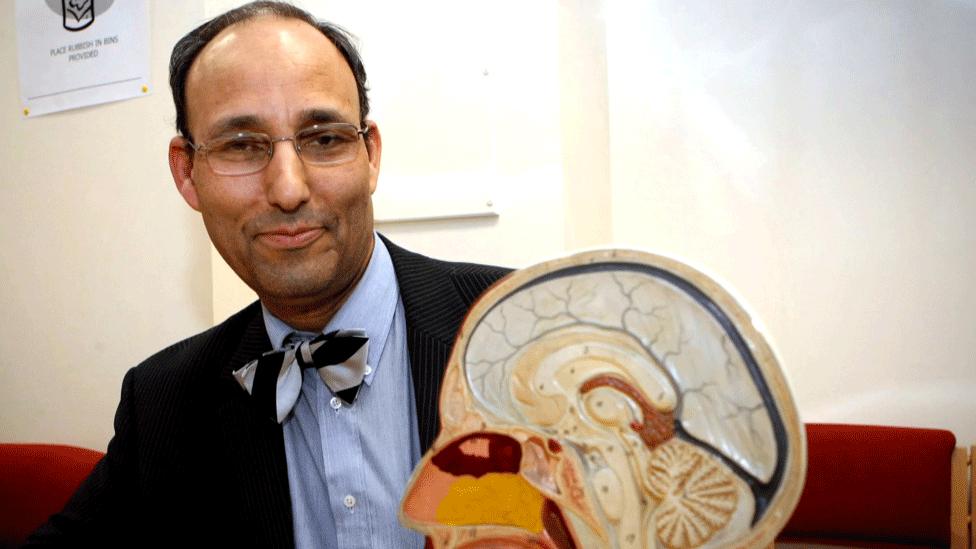
- Published21 February 2020
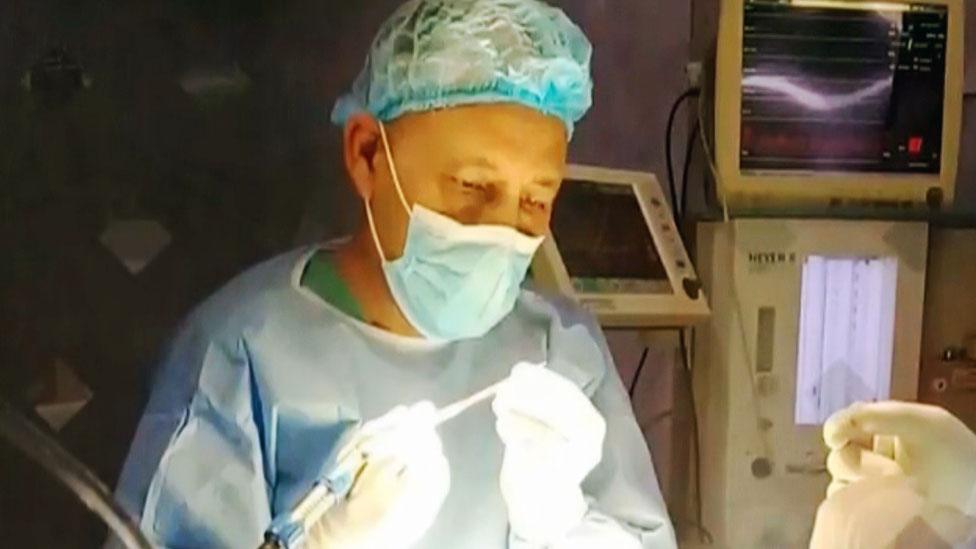
- Published3 September 2018
